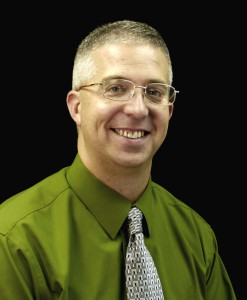 As the chaplain at Intermountain’s residential program, I often hear the stories of families parenting children who have experienced trauma and how hard it is for them to find a church that “gets them.” One mother shared with me, “The hard thing was, just as my daughter’s behaviors were getting worse and I needed a supportive community, my fears of being judged or misunderstood caused me to withdraw even more.” Another family attended church regularly until their son’s behavior made it almost impossible to worship with their congregation. “We use to go, until I got tired of the looks I’d get on Sunday morning. The other parents complained to the pastor about my son.” Trauma comes in many forms, but for the children struggling to make sense of their past and find hope in the future, the process of healing requires those that can see passed their behaviors to the hurting child underneath.
As the chaplain at Intermountain’s residential program, I often hear the stories of families parenting children who have experienced trauma and how hard it is for them to find a church that “gets them.” One mother shared with me, “The hard thing was, just as my daughter’s behaviors were getting worse and I needed a supportive community, my fears of being judged or misunderstood caused me to withdraw even more.” Another family attended church regularly until their son’s behavior made it almost impossible to worship with their congregation. “We use to go, until I got tired of the looks I’d get on Sunday morning. The other parents complained to the pastor about my son.” Trauma comes in many forms, but for the children struggling to make sense of their past and find hope in the future, the process of healing requires those that can see passed their behaviors to the hurting child underneath.
Childhood trauma and adversity are both common-place in Montana. The results of a 2014 nationwide survey into the prevalence of toxic stress in childhood revealed that Montana is among the hardest places in the country to be a child. ChildTrends.org reports that 28% of Montana’s children are growing up with economic hardship, 26% of these households have experienced divorce, and 14% are living with someone who is mentally ill, suicidal, or has been  depressed for more than a couple of weeks. Clearly, there are some very difficult issues facing a large number of Montana’s children and their caregivers. My passion is to see faith communities across Montana be part of addressing the negative impacts of these stressors in the lives of our children. I’d love for those families I work with to find dozens of churches to choose from that would all greet their children with compassion and understanding!
depressed for more than a couple of weeks. Clearly, there are some very difficult issues facing a large number of Montana’s children and their caregivers. My passion is to see faith communities across Montana be part of addressing the negative impacts of these stressors in the lives of our children. I’d love for those families I work with to find dozens of churches to choose from that would all greet their children with compassion and understanding!
My hope is that a Sunday school curriculum I have authored, with a companion DVD that shares the insights of my colleagues at Intermountain, will start to address the need for practical application of trauma-informed principles within local ministries. I hope to connect the expertise of Intermountain’s excellent direct care workers, clinicians, and teachers to the wonderful churches throughout Montana. The curriculum just takes a look at the “slice” of trauma-informed ministry that I am most familiar with: interventions for children. I do hope, though, that it serves as a springboard for congregations to enter the larger trauma-informed ministry conversation.
I feel passionate about this work, because children’s mental health is an issue not just for Intermountain and similar organizations. The prevalence of adversity in childhood, now firmly established through the Adverse Childhood Experience (ACE) Study and subsequent research, should elicit the same response today that was expressed by Intermountain’s founder in 1909. Brother William Wesley Van Orsdel advocated for the care of vulnerable children in Montana, asking,
“How could we possibly not do such a thing? Under God, brethren, we cannot continue to let the suffering of children go unchallenged.”
That statement launched the ministry that I serve as a chaplain, and that passion for the well-being of children is what fuels the ministry and mission of Intermountain today. Those families mentioned earlier want to connect to a faith community and our churches want to love those families well. Tension arises when there is a gap between intention and ability in ministry. I have lived within this tension most of my life, and I hope to bridge the gap between the needs of children and youth from hard places and the desire of the Church to meet those needs.
The curriculum will serve as my first attempt to frame an understanding of the brain and human development, trauma’s effect on children, and the teachings of the Christian church and its founder, Jesus Christ. While not exhaustive in its treatment of these fields, I am hoping that by raising the topic within faith communities, those with personal experience and expertise in mental health, medicine and education will be emboldened to add their voices to the discussion.
Will you join me and many of Intermountain’s supporting churches in a much needed discussion of the Church’s approaches to trauma, the affected children in our communities, and the role each of us might play in facilitating healing and wholeness? If you are interested, please contact me! Thank you and God bless you.
NOTE: This article originally appeared in the Helena Independent Record, March 18, 2017

 Click here to subscribe to our RSS feed with your favorite email client and be alerted to new articles.
Click here to subscribe to our RSS feed with your favorite email client and be alerted to new articles.